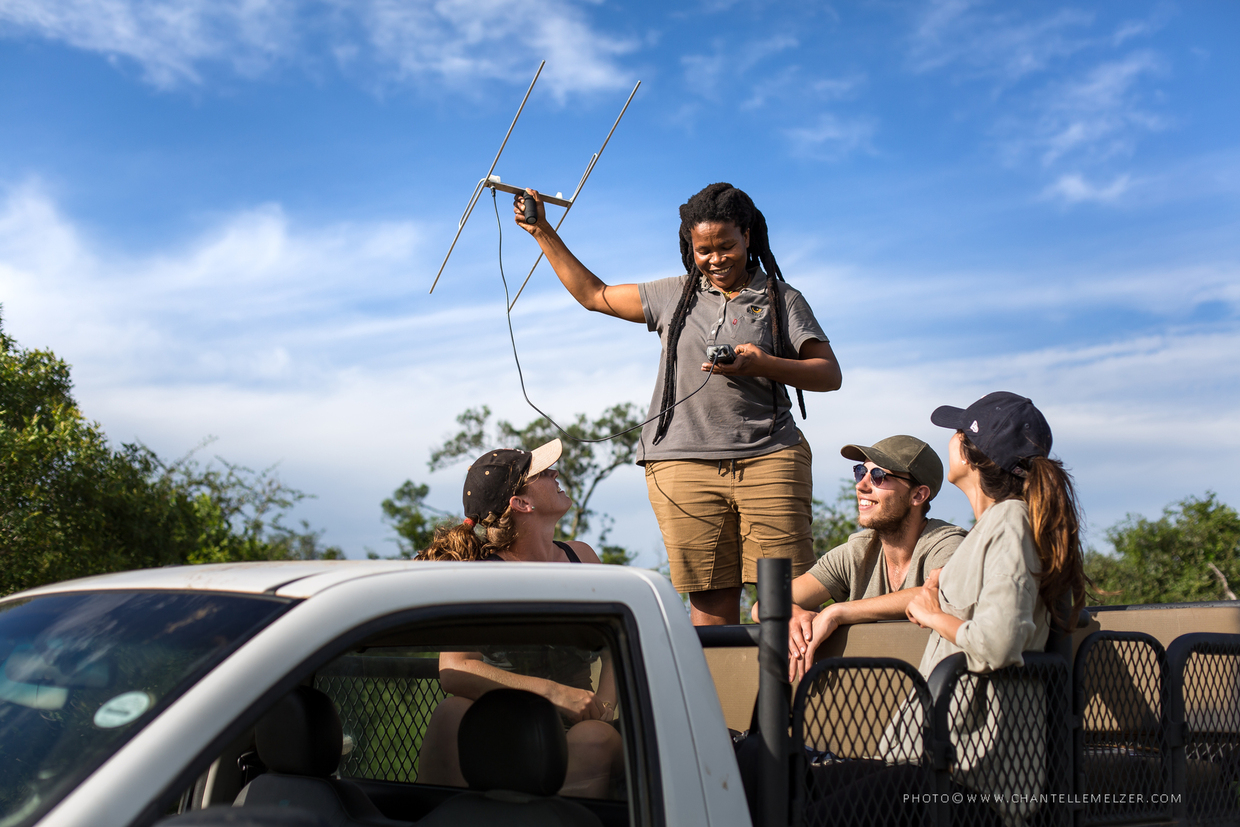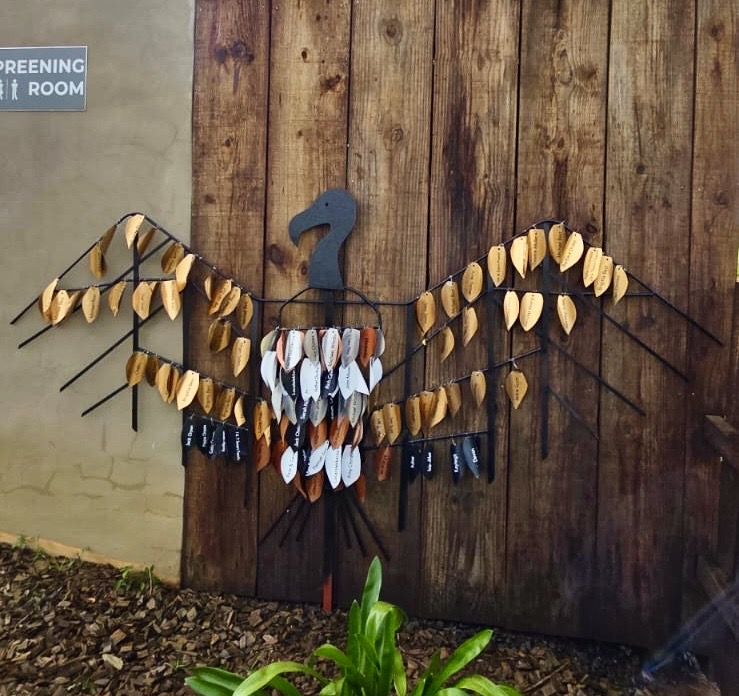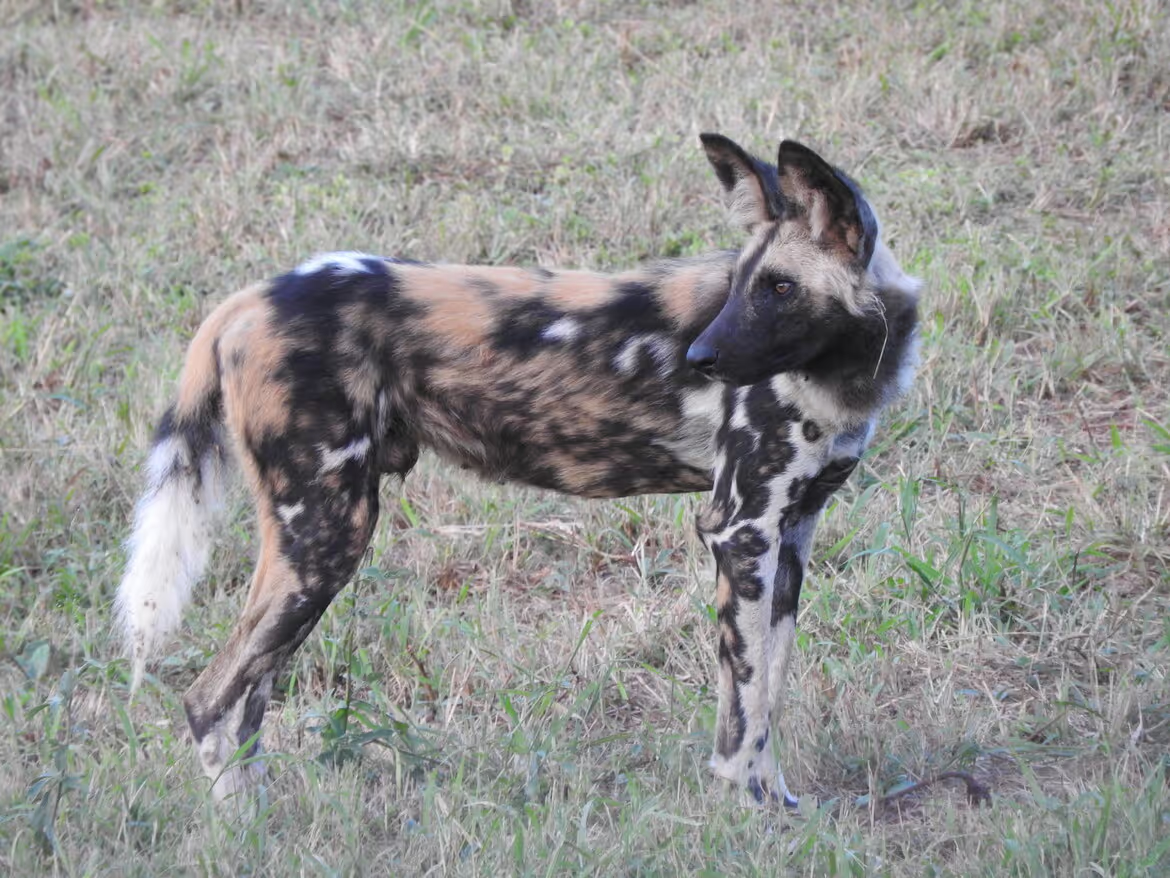The African Wild Dog is currently the second most endangered canid in Africa after the Ethiopian Wolf, and the most endangered carnivore in South Africa. African Wild Dog behaviour is rather unique among canid species. They form incredibly strong social bonds with one another and are highly intelligent animals.
Operating as a single unit, wild dog packs are some of the most successful predators in the world. They are the most successful hunters of any predatory mammals on the continent, with a success rate of around 80%. (By comparison, lions have a success rate of 30%). African Wild Dog behaviour is fascinating to observe and some interesting and important data has been collected about them via wildlife monitoring efforts.
African Wild Dog Behaviour: Breeding
African Wild Dogs live in packs that are usually dominated by a monogamous breeding pair - an alpha male and alpha female. Wild dog pups are cared for by the entire pack and usually have older siblings to watch over and feed them.
African Wild Dog Behaviour: Feeding
An adult wild dog is left to guard the pups while the rest of the pack go out and hunt. Once the hunting party have consumed their kill, they return to feed the pups. On arrival, the hungry pups will beg from the adults - encouraging regurgitation with a cacophony of squealing and excitement. Whole chunks of meat will be brought up for the little ones to eat. The adults will also carry meat back to the pups if they're close to a kill site. The dogs that were left on sentry duty will often then swap with the returnees and go and feed too.

African Wild Dog Behaviour: Moving Den Sites
The denning of wild dogs takes place towards the end of the rutting season of impala, usually in May. When the impala lambs start dropping in November, the pups are moving with the pack and learning to hunt. The timing of these events seems more than a fortuitous advantage for the young learners.
During wildlife monitoring, packs of wild dogs can often be sighted moving den sites. Earlier in 2015, one such pack in Hluhluwe Game Reserve (named Crossroads Pack) can be seen in the video below moving den sites along with their 8-10 week old pups.
African Wild Dogs Moving Den Sites
Why African Wild Dogs Move Den Sites
A wild dog pack will move their young to a new den site (usually a hole in the ground or a rock crevice) a few times during the denning period. This is due to a number of reasons but is usually to avoid other predators in the area that could pose a threat to the pack and the pups. Another reason is to avoid or reduce parasite infestations - especially fleas.
Wild dog pups need to stay in a den until they are about 4 months old. This is when they are big and strong enough to move freely with the pack.

Snaring Susceptibility Of Wild Dogs
Why are African Wild Dogs so Endangered? A major cause is snaring. Most of our planet's wildlife is found in rural areas. Poaching and the illegal meat trade is rife in most of Africa, and snaring is one of the many methods used. Snare hunting is illegal in South Africa.What's more is that while the target prey of hunters is generally antelope, snares often end up fatally wounding endangered wildlife instead.

"African Wild Dogs stick together", says priority species expert Chris Kelly. "If a member of the pack gets caught in a snare, the others will always come back to find it. This often leads to more dogs getting snared". If there are enough snares in one area, an entire pack of wild dogs can be killed.
There are fewer than 550 wild dogs left in South Africa. That number would very quickly diminish if we were to stop monitoring and protecting these animals.

Understanding African Wild Dog behaviour is one thing, but the ideal conservation strategy is to leave nature to its own devices and give wild dogs enough space and suitable habitat to thrive. African Wild Dog behaviour is unique in terms of habits, pack structure and social dynamics, but because misconceptions about wild dogs exist, they sadly do not receive the the support they need.

"Countless species have been wiped out by humankind over the years by persecution, disease outbreaks and land fragmentation. With our wild areas shrinking and the human population burgeoning, the situation is only worsening for wild dogs and several other species", says Kelly. What we need is to not only understand African Wild Dog behaviour, but also to look at establishing new areas that can hold these animals sustainability.
Wildlife ACT offers award-winning, Fair Trade Tourism certified wildlife volunteering projects across 5 protected areas in Zululand. They are partnered with global conservation authorities and won Second Place for a World Responsible Tourism Award in the category “Best for Wildlife” as well as Second Place for an African Responsible Tourism Award in the category “Best for Habitat & Species Conservation”. You can apply to join our monitors in the field.





.jpg)


.jpg)




